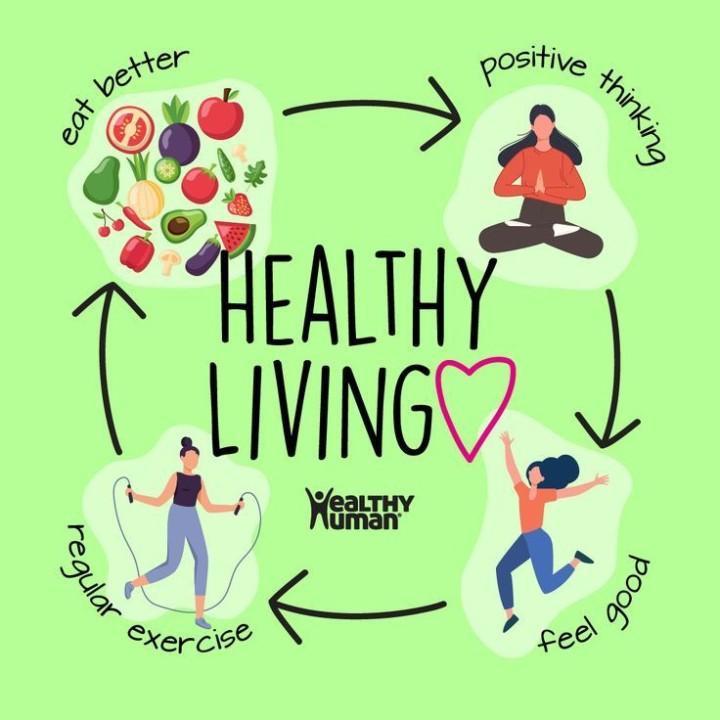“Health is wealth” is not just a proverb — it’s a timeless truth. Good health is the foundation of a fulfilling life. It gives us the strength to pursue our goals, care for our loved ones, and enjoy every moment to its fullest. Without health, even the greatest success or wealth feels incomplete. In today's fast-paced and stressful world, understanding, protecting, and promoting health has become more important than ever.
What Is Health?
According to the World Health Organization (WHO), health is defined as “a state of complete physical, mental and social well-being, and not merely the absence of disease or infirmity.”
This definition expands our understanding of health beyond just “not being sick.” It includes:
-
Physical health – The condition of the body and its ability to function properly.
-
Mental health – Emotional and psychological well-being.
-
Social health – The ability to build meaningful relationships and adapt to different social situations.
-
Environmental health – Living in a safe and clean environment that supports well-being.
True health means achieving a balance between all these aspects.
Importance of Good Health
Having good health allows individuals to:
-
Live longer and more active lives
-
Be more productive at work or school
-
Enjoy better emotional well-being
-
Reduce medical costs and dependency on medication
-
Participate fully in family, community, and cultural life
On a national level, a healthy population boosts economic growth and development, reduces the burden on healthcare systems, and enhances overall societal happiness.
Factors Affecting Health
Health is influenced by a variety of factors, also known as determinants of health, including:
1. Lifestyle Choices
Habits like diet, physical activity, sleep, smoking, alcohol use, and stress management play a crucial role in maintaining health.
2. Genetics
Our inherited genes can affect our susceptibility to certain diseases, but they don’t define our entire health outcome.
3. Environment
Clean air, safe drinking water, sanitation, housing, and exposure to pollutants significantly affect health.
4. Healthcare Access
Regular checkups, vaccinations, early diagnosis, and treatment ensure better health outcomes.
5. Education and Income
People with higher levels of education and income often have better health due to greater access to nutritious food, medical care, and health knowledge.
6. Social Support
Strong family ties, friendships, and community support can protect mental and emotional health.
Major Health Concerns Today
While humanity has made incredible progress in medicine, new and old challenges continue to threaten health across the globe:
-
Non-Communicable Diseases (NCDs): Heart disease, diabetes, cancer, and obesity are increasing due to poor lifestyles and aging populations.
-
Mental Health Disorders: Anxiety, depression, and stress-related issues have become widespread, especially among youth.
-
Infectious Diseases: COVID-19 reminded the world of the deadly impact of viruses. Other diseases like tuberculosis, malaria, and HIV still persist.
-
Malnutrition: Millions suffer from either undernutrition or obesity due to lack of access to healthy food.
-
Pollution and Climate Change: Air and water pollution, along with rising temperatures, are causing health issues like asthma, heat strokes, and vector-borne diseases.
Promoting a Healthy Lifestyle
Maintaining health is a lifelong commitment. Here are some key steps to live a healthier life:
1. Eat Balanced Meals
Consume a diet rich in vegetables, fruits, whole grains, lean proteins, and healthy fats. Avoid junk food, excess sugar, and processed items.
2. Exercise Regularly
Engage in at least 30 minutes of physical activity (walking, yoga, sports, etc.) most days of the week.
3. Sleep Well
Adults need 7–9 hours of sleep daily. Good sleep improves memory, mood, and immune function.
4. Manage Stress
Practice meditation, hobbies, time management, and relaxation techniques to keep stress levels under control.
5. Stay Hydrated
Drinking enough water helps with digestion, detoxification, and energy levels.
6. Avoid Harmful Habits
Quit smoking, limit alcohol, and avoid drugs. These have long-term harmful effects on health.
7. Stay Updated on Health Checks
Regular screenings, vaccinations, and dental/vision checkups help detect problems early and keep the body in check.
Mental Health: Equally Important
Mental health is often ignored but is just as critical as physical health. It includes our emotional resilience, self-esteem, and ability to cope with stress. Simple practices to maintain mental health:
-
Talk openly about feelings
-
Seek professional help if needed
-
Take breaks and practice mindfulness
-
Stay socially connected
-
Engage in creative or spiritual activities
Health and Technology
Modern technology has transformed healthcare:
-
Telemedicine allows people to consult doctors remotely.
-
Fitness trackers and apps help monitor physical activity, sleep, and diet.
-
AI and robotics are enhancing surgeries, diagnostics, and patient care.
-
Health education on social media spreads awareness on hygiene, diseases, and healthy habits.
However, it’s important to balance screen time and avoid misinformation online.
Global Efforts for Health
Organizations like WHO, UNICEF, Red Cross, and various governments are working together to improve global health through:
-
Immunization programs
-
Sanitation and clean water projects
-
Health education campaigns
-
Emergency responses to epidemics and natural disasters
-
Policies to provide universal healthcare access
Such efforts are crucial to achieving Health for All, a goal aligned with the United Nations' Sustainable Development Goals.
Conclusion: Your Health, Your Responsibility
Health is not just the doctor’s responsibility — it begins with you. Every choice you make — what you eat, how you move, how you rest — shapes your well-being. While access to medical care and support is important, the real power of good health lies in daily habits and awareness.
In the end, health is not a luxury — it is a necessity. It allows us to live, love, work, create, and grow. It is our most valuable asset, and it’s worth protecting every single day.
Take care of your body. Take care of your mind. And in doing so, you take care of your life.

